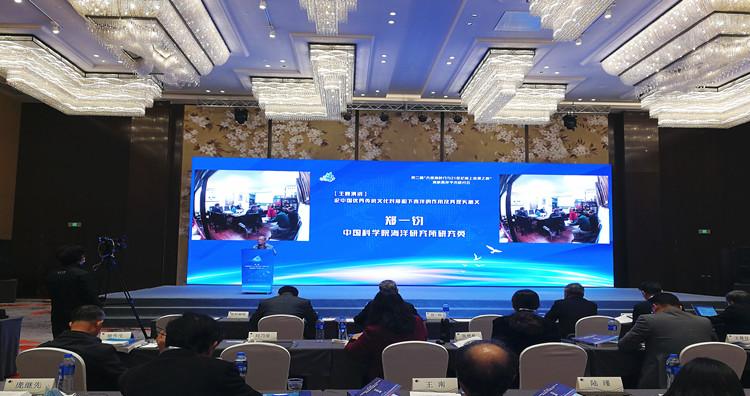
This reporter learned from the second cross-strait academic seminar on "The Age of Great Navigation and the Maritime Silk Road in the 21st Century" being held in Xiamen that the proposal of "writing Yan Siqi into the national history textbook" put forward at the first seminar last year has been adopted and substantial progress has been made.
Yan Siqi (1589-1625), one of the leaders of the Minnanhai Merchant Clique in the late Ming Dynasty, was born in Qingjiao Village, Haicheng County, Zhangzhou Province, Fujian Province (now part of Haicang District, Xiamen). In the era of global navigation, he first led Zheng Chenggong's father Zheng Zhilong and other Fujian merchants and thousands of people to Taiwan Island, built villages and settled, and carried out large-scale organized reclamation of Taiwan, so he was revered as "the king of Kaitai" and "the first pioneer to open up Taiwan". He divided the settlers into ten villages and distributed them with silver and cattle, farming tools, etc. Reclamation requires capital investment, Yan Siqi selected a group of Zhang, Quan people with navigation experience, with the original thirteen large ships, to carry out maritime trade with the mainland; at the same time, organize sea fishing and island hunting, and develop the economy of mountains and seas. Historian Lian Heng recorded in his "Biography of General History and Personalities of Taiwan" that "led by Si Qi, Zheng Zhilong was attached to yan." ”
In June 2019, at the first cross-strait academic seminar on "The Great Navigation Age and the 21st Century Maritime Silk Road" sponsored by the China Academy of African Studies, the Taiwan, Hong Kong and Macao Research Center of the Chinese Academy of Social Sciences, and the Management Committee of the Taiwan Investment Zone of Haicang District, Xiamen City, the Xiamen Haicang Taiwan Investment Zone and scholars on both sides of the strait proposed that Yan Siqi be written into the national history textbook, which was valued and adopted by the state.
The relevant management measures stipulate that the history curriculum teaching materials shall be uniformly compiled, reviewed and used by the state. According to Cao Fang, chairman of the CppcC Committee of Haicang District, Xiamen City, yan Siqi was written into the national history textbook in accordance with relevant norms. After understanding and confirmation from the relevant competent departments of the state, at present, there has been substantial progress in writing Yan Siqi into the national middle school history textbook.
Cao Fang said: It is of great significance to write Yan Siqi into a national history textbook; it will make the common historical memory of the two sides of the strait clearer and more profound, will further deepen the identity of the two sides of the strait, further reveal the historical facts that Chinese first operated and developed Taiwan, once again provide the legal basis for Taiwan's subordination to China, help understand the historical logical relationship between Yan Siqi's exploitation of Taiwan and Zheng's successful recovery of Taiwan, and help understand the scientific thesis that "Taiwan is an inseparable part of China's sovereignty and territory."
According to Cao Fang, Yan Siqi has enjoyed a lofty position on both sides of the strait, especially among the people, for a long time. Lian Heng's "General History of Taiwan" records that "passing through the wilderness of Zhuluo, traveling to the Three Realms, Tian Fu's old age, often the matter of Yan Siqi." In Taiwan, many historical sites and memorial sites of Yan Siqi's opening of Taiwan still exist today.
In 1953, Yan Siqi's tombstone was listed as a monument in Taiwan Province; in 1959, the Taiwan authorities established the "Monument to Mr. Yan Siqi's Pioneering Taiwan Landing" in the center of the street in Beigang Township, Yunlin County; in 1966, in order to commemorate his exploits in opening, the five-story bell tower "Siqi Pavilion", the Drum Tower, and the "Huaifan Building" were built on both sides of the Fengtian Palace in Xingang Township, Chiayi County.
Over the years, the people of Taiwan and the mainland, especially the relatives of the Yan clan on both sides of the strait, have jointly commemorated and commemorated Yan Siqi, and jointly carried out activities such as worshipping Yan Siqi, reconstructing the Yan clan genealogy, building Yan Siqi memorial facilities and places, and compiling and filming Yan Siqi's theme works.
In recent years, the Haicang Taiwan Investment Zone, as the hometown of Yan Siqi, has worked with Taiwan compatriots to vigorously carry forward the great historical merits of Yan Siqi, Zheng Zhilong, and Zheng's successful recovery of Taiwan. In 2016, the humanistic history documentary "Kaitai Wang Yan Siqi" was widely broadcast on CCTV on the mainland and many television stations in Taiwan with the participation of mainland literature and history experts and Yan Clan relatives, Lian Zhan, Yan Qingbiao and other Taiwanese people; in 2019, the famous Taiwanese writer Yang Du cooperated with Haicang to write the book "Yan Siqi and the Age of Great Navigation", which was published and distributed in Taiwan and widely reported and promoted by the mainland media; in 2019, the Kaitai Cultural Park, which was donated by people on both sides of the strait, was built in Yan Siqi's hometown of Xiamen Haicang Qingjiao Village In October 2020, relevant non-governmental organizations on both sides of the strait began to plan and launch the 400th anniversary of Yan Siqi's opening.
The Second Cross-Strait Academic Seminar on the "Great Navigation Age and the 21st Century Maritime Silk Road" is an annual key exchange project of the Taiwan Affairs Office of the State Council, co-sponsored by the China Academy of African Studies, the Taiwan, Hong Kong and Macao Research Center of the Chinese Academy of Social Sciences, the Management Committee of the Taiwan Investment Zone in Haicang District, Xiamen City, the Xiamen Shishi Academy (cross-strait exchange base), and co-organized by the Chinese Zheng He Society in Taiwan.
Text: Wen Wei Po reporter Han Hong
Pictured: Han Hong
Editor: Zhao Zhengnan